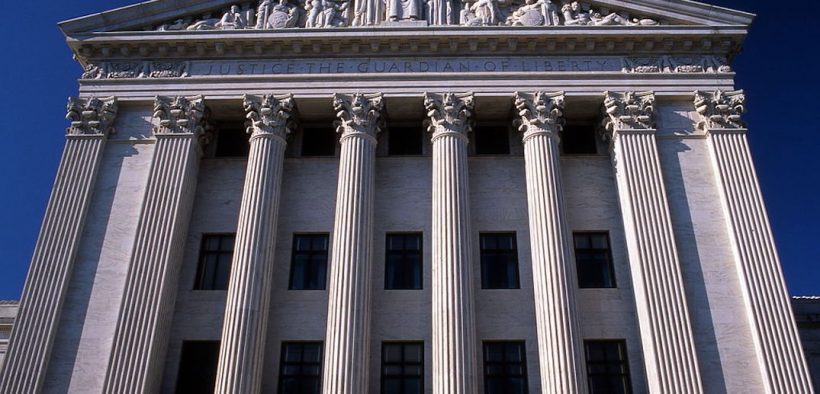Supreme Court Disenfranchises Voters En Masse in Wisconsin Ruling

“Either they will have to brave the polls, endangering their own and others’ safety. Or they will lose their right to vote, through no fault of their own.”
In a 5-4 ruling along partisan lines, the United States Supreme Court ruled Wisconsin cannot accept absentee ballots postmarked after its voting day of April 7. A lower court previously ruled Wisconsin would be able to accept absentee ballots returned by April 13, but the Supreme Court has effectively thrown out thousands of ballots with the last-minute decision.
In her dissenting opinion, Justice Ruth Bader Ginsberg wrote, “the Court’s order, I fear, will result in massive disenfranchisement.” There are fears tens of thousands of voters will not receive their absentee ballots until after April 7.
The controversial elections are set to be held after the Democratic Governor Tony Evers made a last-second attempt to postpone the elections until July 9. But, the Republican-controlled Wisconsin Supreme Court ruled 4-2 that the governor could not unilaterally postpone the election.
Wisconsin residents have been ordered to stay at home until April 24 due to the coronavirus, and as of April 6, the state has 2,440 cases and 77 deaths due to the virus. Milwaukee County is the hardest hit with over half of the cases and deaths at 1,256 cases and 40 deaths.
A group of 10 Wisconsin mayors, including Milwaukee’s, called on the Wisconsin Department of Health Services to postpone the election.
The mayors wrote, “EVERY other state that faced this issue during the pandemic has crafted a solution that respects democracy and protected the health of their citizens. We must do the same. The lives of our constituents depend on it.”
Voter Suppression
The US and Wisconsin Supreme Court took a different view than many local officials and have made it much more difficult for Wisconsin.
Milwaukee, the state’s most populous country, will only have 5 polling places opened compared to the usual 180 due to the public health crisis. Election officials reported a shortage of 7,000 election workers throughout the state.
Neil Albrecht, the head of elections in Milwaukee, told NPR, “I come from a place of election worker and public safety first and foremost, and then of course access to voting, but at the end of the day we shouldn’t be putting our election workers or the public at risk.”
The US Supreme Court’s decision according to Justice Brett Kavanaugh was “a narrow, technical question about the absentee ballot process.” But many Wisconsin voters had been under the impression that they could send their absentee ballots up until April 13 after Federal Judge William M. Conley placed a provision that would hold election results back until April 13.
The Supreme Court’s decision decreases the number of options Wisconsin voters have to participate in the election, and due to a huge surge in absentee requests, many voters will not get their absentee ballots until after election day.
Election Mess
Wisconsin’s primary process potentially is a doomsday scenario for democracy that very well could repeat itself in November during the general election. Wisconsin voters who have yet to receive their absentee ballot are left with the option of either risking their lives and go to a physical polling station or not vote.
“A minimum of tens of thousands of voters who have requested absentee ballots will probably not receive those ballots in time to mail them back on or before Election Day,” a brief submitted to the US Supreme court read.
While President Trump and many others are hoping to wrap up extensive restrictions on American’s daily lives as soon as possible, the coronavirus will very likely still be with us in the fall. Potential coronavirus resurgences in the fall would spell huge problems for the integrity and legitimacy of the general election.
Thus far, the Republican Party and Democratic frontrunner Joe Biden have shown no interest in postponing primaries. Without big changes to expand vote-by-mail and absentee voting millions of Americans may fall to the wayside in November.















